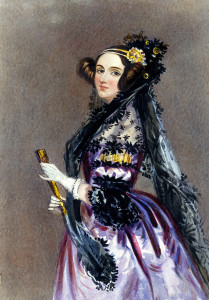We get hung up on passion so easily. Seeing the Picasso’s and Edison’s and Ford’s of the world, we too want to be so enchanted with a single thing that we can do it forever. I can’t deny, it’s enticing to believe that there is a passion out there that speaks to every individual so deeply.
The problem is, most people don’t find that level of passion with anything, at least not in the way it is defined today. There’s an entire argument on whether passion is found or created, but we’ll leave that for another time. What I want to explore today is an alternative to finding your passion.
How do we get past the attractive idea of passion and take another approach to our work? How do we apply more logic to our career choices?
Scott Adams, creator of the popular comic Dilbert, gives us some advice on another way:
If you want an average successful life, it doesn’t take much planning. Just stay out of trouble, go to school, and apply for jobs you might like. But if you want something extraordinary, you have two paths:
1. Become the best at one specific thing.
2. Become very good (top 25%) at two or more things.
The first strategy is difficult to the point of near impossibility. Few people will ever play in the NBA or make a platinum album. I don’t recommend anyone even try.
The second strategy is fairly easy. Everyone has at least a few areas in which they could be in the top 25% with some effort. In my case, I can draw better than most people, but I’m hardly an artist. And I’m not any funnier than the average standup comedian who never makes it big, but I’m funnier than most people. The magic is that few people can draw well and write jokes. It’s the combination of the two that makes what I do so rare. And when you add in my business background, suddenly I had a topic that few cartoonists could hope to understand without living it.
via Scott Adams.

Ada Lovelace
It makes so much sense, yet why don’t we take this approach seriously? The simple act of combining two or more skills can create a unique opportunity that can turn into success. Let’s run the numbers.
Perhaps you’ve gotten pretty good at writing over the years. You’re not the best, but you’re better than most. Maybe you’re in the top 20% of writers. Then let’s say you’ve also become proficient at cooking, just inside the top 25%. How many other people have that combination?
You’re able to get to the top 5% just by putting together a few skills and the more you get good at, the less competition there is. This trend isn’t something new, as we can see it playing out repeatedly throughout history.
Ada Lovelace comes to mind when thinking about this approach. She has been celebrated as the world’s first computer programmer and an inspiration when it comes to imagination in all things. What’s most interesting are the titles she and her colleagues attached to her throughout the years, which include: The Enchantress of Number, Lady Fairy, Poetical Scientist, Analyst & Metaphysician, to name a few.
She operated at the intersection of poetry and mathematics, of philosophy and science, and by doing so, she had a unique perspective that rivaled many and enthralled her equals. The same can be said of the late Steve Jobs and his work which combined the arts and technology in ways that are still impacting the world today.
Losers have goals. Winners have systems.Scott Adams
Scott Adams was able to combine his ability to draw, his humor, and business into a timeless comic that has been going strong for decades. The basic premise of his approach was to combine skills and think of them within systems rather than a single passion.
If you pick skills that are valuable, they will bring you closer to success, no matter the specific outcome of what you’re doing today. Getting good at coding or design or public speaking, increases your odds of success. Getting good at all three? Your odds improve dramatically.
It may be time to move past the idea of passion and take a more systems based approach to your career.
Image via flickr
